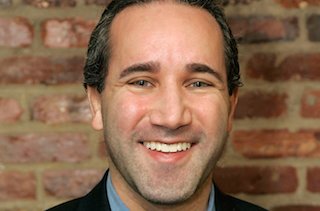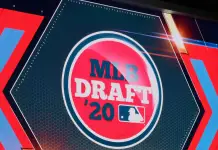MLB’s owners clearly have the right to withhold approval of the Angeloses owning the team. I don’t know whether they would withhold that approval, but I think they would. Either the current owner or his sons may decide to sell the team for the same reason, which I’ll try to explain below. I am using numbers in Forbes’ 2017 report on MLB teams except where I indicate otherwise. https://www.forbes.com/mlb-valuations/list/#tab:overall Aside from my taking the Forbes numbers at face value, I have of necessity made some guesses and assumptions in here, and if they seem wrong (or I’ve made other errors), I’d be glad to hear about them.
I’m assuming that Peter Angelos owns about 80 percent of the Orioles, that he continues to do so until he dies, and he leaves his ownership interest in the team to one or both of his sons. I am pretty certain that there is no “estate plan” that will enable his estate to avoid paying taxes if that occurs. As described below, the estate tax problem that would arise on these assumptions is the same one created when the owner of a family farm dies and bequeaths it to his children, who have to sell the farm to developers to pay the estate taxes on it. More accurately, any such plan would involve making arrangements that would complicate the ownership of the team, which MLB would not allow.
There is one way to defer those taxes, either in the hope that federal estate tax law will change or on the premise that paying taxes tomorrow is better than paying them today: if Angelos leaves the team to his wife, there will be no estate taxes due, but the same problems will arise if she tries to leave the team to the Angelos sons, and the tax burden will be greater if MLB team valuations continue to increase — unless the law has changed at the time of her death.
Some numbers. Forbes valued the Orioles earlier this year at $1.175 billion. I think the IRS would make a more aggressive valuation and could get away with it, especially if valuations and actual sales continue to climb. But let’s use $1.2 million. The Orioles are reported to have $200 million in debt — in apparent violation of MLB rules — making the value of the equity of the Orioles around $1.0 billion. I understand from various sources I’ve seen that Angelos owns about 80 percent of the team, so the value of what he passes along to his sons would be about .8 x 1.0 billion, or $800 million.
The Forbes valuations include the value of teams’ cable rights fees but do not include the value of their interests in regional sports networks. It’s very hard to value MASN while the rights fees dispute is pending, but that’s something that would need to be done. In 2013, a Forbes writer valued MASN at $600 million. I’ll discount that value in light of the likelihood of large rights fee increases, and estimate the value of the Orioles’ majority interest in MASN at $250 million.
So the Oriole-related interests in Peter Angelos’ estate have a value of about $1.05 billion. I think that’s pretty conservative, but let’s knock it down to an even $1.0 billion. The federal estate tax on that amount is 40 percent. The Maryland tax appears to be either an additional 10 percent or 16 percent. I’ll take the lower figure. Therefore the estate would owe $500 million in federal and estate taxes on the Orioles-related assets. Peter Angelos’ estate would have to come up with $500 million in liquid assets (cash, stock, bonds, etc.) to pay those taxes, right? Wrong. It’s worse than that. Let’s say that when Peter Angelos dies there’s $600 million of cash in the estate. Before applying that to pay taxes on the Oriole-related assets, the estate has to pay taxes on that $600 million in assets. The federal and state taxes on $600 million would be about $300 million. So to pay taxes on Oriole-related assets valued at $1 billion, the state would need about $750 million in liquid assets — which would be reduced after estate taxes to about $500 million, the taxes on the Oriole-related assets.
I have no idea whether Angelos’ estate has or could raise the $750 million in cash it would need to pay taxes. (I have some doubt about that based on what I’ve read, including estimates of his net worth.) It’s my guess that Angelos expected that, before or soon after his death, MASN could be sold to pay a large part of the estate taxes that would come due. But MASN is not readily salable with the rights fees dispute unresolved. And if the rights fees stay as high as they were set after the original arbitration, the value of MASN will be reduced significantly. But one thing I’m certain of is that the $750 million in taxes, in addition to estate taxes on his other assets, will largely deplete Peter Angelos’ wealth.
And that’s not quite the end. The MLB Constitution limits the debt a team is permitted to have, such that its operating income can’t exceed 12 percent of its debt. The Orioles had operating income of $9 million in 2015 and operating losses of $2.1 million in 2016, and I have no reason to think that will change radically in 2017. The Orioles’ 2015 and 2016 profits would support debt of only $75 million and 0, respectively, to be in compliance with MLB’s rules. I would think that in connection with a proposed approval of a transfer of the team, MLB would insist that most or all of that $200 million be repaid. And as explained above, the estate would need $300 million before estate taxes to pay down debt of $200 million. So, while this part is speculative, there’s a good chance that the $750 million in cash needs cited above would swell to more like $900 million or $1 billion. (I’m assuming that John and Lou won’t have hundreds of millions of dollars, other than what comes out of the estate, to make these payments.)
If the estate can pay this amount and have the ability to transfer the Orioles how would the other MLB owners look at a proposed transfer of the Orioles to John and/or Lou Angeles? For the first 100 years or so of major league baseball, the owners were in the baseball business. For some, that was the owner’s business, in many cases becoming the family business, and the teams were financed from the profits they generated from baseball. Other owners used their teams to enhance their other activities, usually brewing. Still others were rich guys who thought it would be fun to own a team. Pretty much anyone with the resources to buy a team when it was put up for sale was welcome.
The rules of this game have changed. The owners now understand that are one another’s partners in a multi-billion dollar business. They are interested in owners who won’t rock the boat the way Bill Veeck and Charlie Finely, and to a much lesser extent Luria and Angelos, have done. But even more important, and this is something that Bud Selig stressed with the owners, they want owners or ownership groups who are financially secure — after paying their hundreds of millions or billions for the team. They want partners who can weather financial downturns in MLB or in their outside businesses, and they realize that once an owner is in place and has financial problems there is a potential effect on all of MLB, including their own investments. So they’re looking for owners who have lots of wealth and income outside of baseball, and they demand extensive documentation of it. The recent owners who have come into the game are billionaires or large corporations.
Unless I’m way off in my facts and assumptions, I don’t see how wither Angelos son could qualify as the principal owner of the Orioles. They have no record of business or professional accomplishment or of financial success that I’m aware of. I’m pretty sure they’d have no significant sources of income outside the Orioles. Most important, after estate taxes were paid, they would have little in cash reserves to run a team that is in a very difficult competitive circumstance. And they couldn’t count on generating that cash from the Orioles — which were one of five MLB teams to operate at a deficit in 2016 according to Forbes. They would be extremely unimpressive owners from any financial perspective. That’s apart from the likelihood that the Commissioner, his predecessor and, in all likelihood, some owners view Peter Angelos as a difficult guy and wish that he had never become one of their partners.
I suppose the Angeloses, or either of them, could put together a group to own the Orioles, in which others would put up lots of money but one or both of them would maintain control. I’m not sure how easy it would be to raise money that way, or how the MLB owners would look at that sort of arrangement.
A quick word about the Steinbrenners. They inherited 70 percent (I think that was George’s percentage, but I’m not sure) of the NYYs — a money-making machine that is now valued by Forbes at $3.7 billion and is debt-free. That’s after the NYYs sold their interest in YES, their regional sports network, for $4 billion in 2014. Steinbrenner also owned hotels and other real estate, horse racing interests and other stuff. I don’t know who inherited what from George, but it’s likely his sons are each multi-billionaires. In large part, that’s because their inheritances came with zero estate taxes, because of a glitch in federal tax law at the time of George’s death and the absence of estate taxes in Florida, where Steinbrenner lived.
The death of a sports team owner who wants to keep the team in the family is a lot like the death of a farm owner in that situation. Both assets have a fair market value that far exceeds the value attributable to the operating income they generated for the owner — sports teams because that’s what wealthy people or companies are willing to pay for the privilege of owning these rare assets, and the stereotypical farm because of the potential value of the land in the hands of a real estate developer. http://fortune.com/2015/04/13/death-tax-killing-american-family-farms/ The deceased’s interest in both the team and the farm are subject to estate taxes based on those high valuations.
Two small points I should add. I forgot to mention that one estate planning tool that can be used to offset estate taxes is life insurance on the owner’s life, owned by a trust for the benefit of heirs. The insurance proceeds can be tax-free (though there are complications involved in arranging that). The insurance proceeds (even if they are taxed) can be used to pay taxes that come due on the other assets. I doubt it’s feasible, if it’s even possible, to insure a life for hundreds of millions of dollars, but I don’t really know that.
The second is that President Trump has proposed eliminating the federal estate tax. That’s extremely unlikely, but some decrease in the rate is possible, I guess.
Again, I know a little about this stuff, which may be helpful or dangerous or some of each.

























